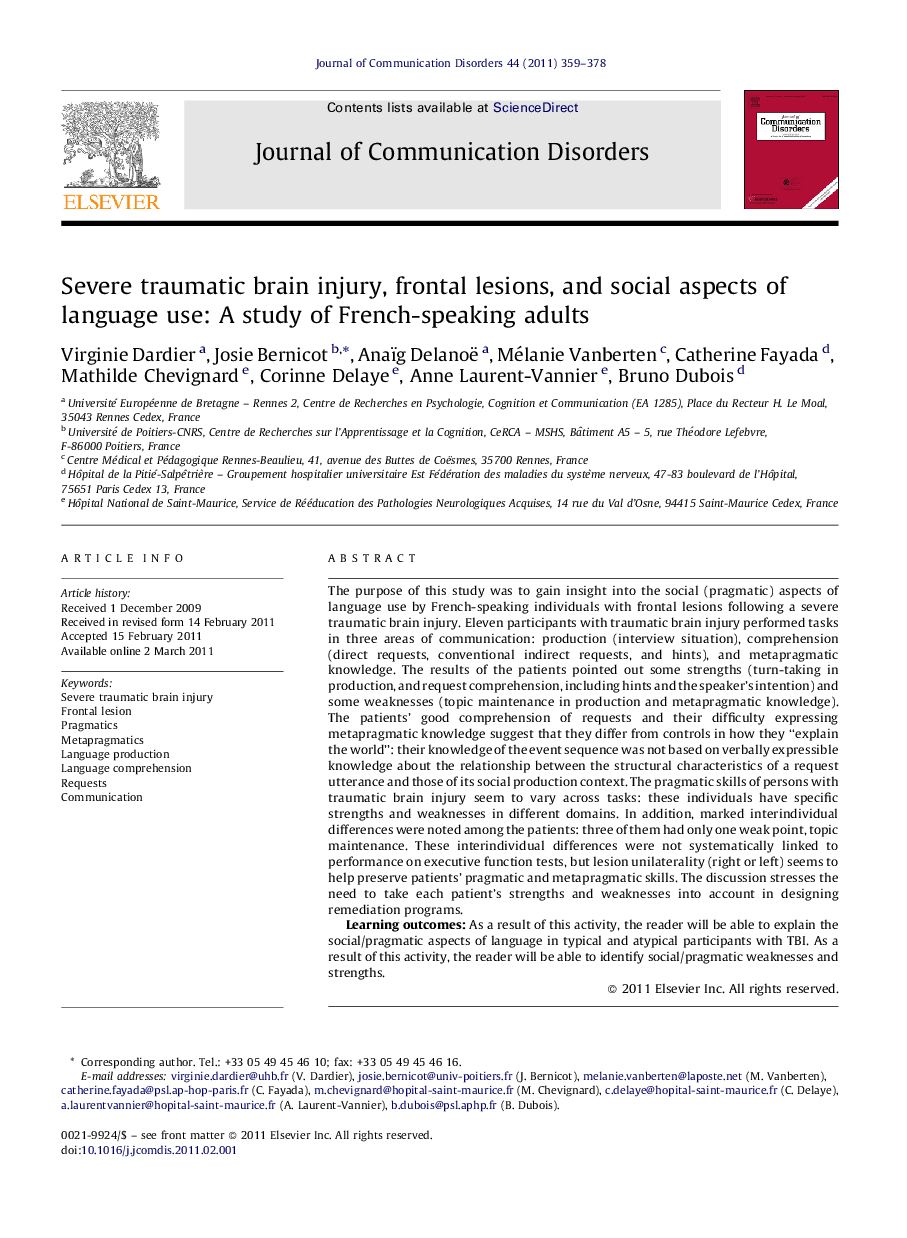| Article ID | Journal | Published Year | Pages | File Type |
|---|---|---|---|---|
| 910934 | Journal of Communication Disorders | 2011 | 20 Pages |
The purpose of this study was to gain insight into the social (pragmatic) aspects of language use by French-speaking individuals with frontal lesions following a severe traumatic brain injury. Eleven participants with traumatic brain injury performed tasks in three areas of communication: production (interview situation), comprehension (direct requests, conventional indirect requests, and hints), and metapragmatic knowledge. The results of the patients pointed out some strengths (turn-taking in production, and request comprehension, including hints and the speaker's intention) and some weaknesses (topic maintenance in production and metapragmatic knowledge). The patients’ good comprehension of requests and their difficulty expressing metapragmatic knowledge suggest that they differ from controls in how they “explain the world”: their knowledge of the event sequence was not based on verbally expressible knowledge about the relationship between the structural characteristics of a request utterance and those of its social production context. The pragmatic skills of persons with traumatic brain injury seem to vary across tasks: these individuals have specific strengths and weaknesses in different domains. In addition, marked interindividual differences were noted among the patients: three of them had only one weak point, topic maintenance. These interindividual differences were not systematically linked to performance on executive function tests, but lesion unilaterality (right or left) seems to help preserve patients’ pragmatic and metapragmatic skills. The discussion stresses the need to take each patient's strengths and weaknesses into account in designing remediation programs.Learning outcomes: As a result of this activity, the reader will be able to explain the social/pragmatic aspects of language in typical and atypical participants with TBI. As a result of this activity, the reader will be able to identify social/pragmatic weaknesses and strengths.
